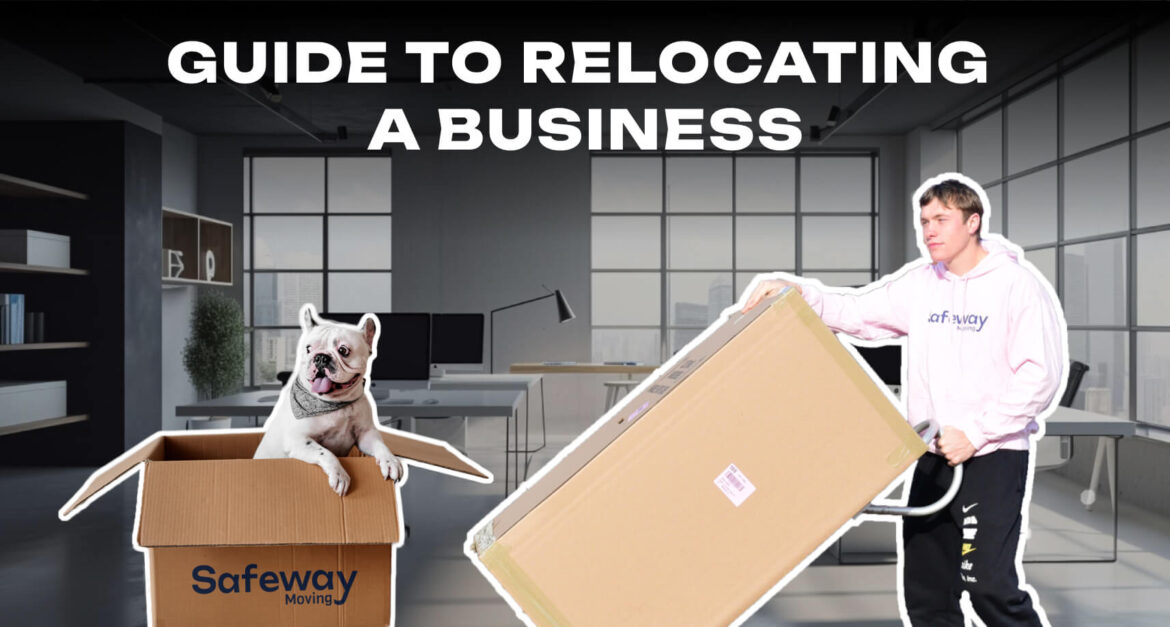
Relocating a business is a major decision that requires thorough planning and strategic execution. Whether you are expanding, downsizing, or seeking a better location for operational efficiency, several key factors must be considered. Moving a business is not just about packing up and finding a new office space; it affects employees, customers, supply chains, and overall profitability. To ensure a seamless transition, businesses must carefully weigh the tradeoffs involved in balancing different relocation aspects. This guide explores the crucial factors to consider when relocating a business, the challenges associated with different approaches, and the importance of making well-informed decisions.
Choosing the Right Location: The Heart of Business Success
Selecting the right location is one of the most critical factors to consider when relocating a business. The success of your business often depends on accessibility, market demand, and operational convenience. A poorly chosen location can negatively impact customer reach, employee satisfaction, and profitability. Therefore, businesses must conduct comprehensive research before making a decision.
Key considerations when choosing a location include:
- Proximity to customers: Being close to your target audience can enhance sales and customer engagement.
- Competition in the area: A location saturated with competitors may hinder your market share, while an area with limited competition could present growth opportunities.
- Cost of living and business expenses: Taxes, rental costs, and labor costs vary by location and significantly impact profitability.
- Infrastructure and accessibility: Ensure the new location has good transportation links, parking facilities, and a stable power and internet supply.
- Local business regulations: Different states and cities have varying laws, which may affect business operations.
Impact on Employees: Retaining and Attracting Talent
A business is only as strong as its workforce, making employee considerations a major factor when relocating. The move can significantly impact employees’ commute times, job satisfaction, and overall well-being. Ensuring a smooth transition for staff is essential for business continuity and morale.
When assessing the impact on employees, consider:
- Commuting distance and transportation options: A long and expensive commute may lead to dissatisfaction and attrition.
- Relocation assistance: Offering relocation support, such as financial aid or temporary housing, can ease the burden on employees.
- Job market conditions: The availability of a skilled workforce in the new location is crucial for future hiring.
- Cost of living: If the new location has a significantly higher cost of living, employees may struggle with the transition.
- Company culture and team dynamics: Moving to a new place can disrupt workplace culture, making it important to facilitate team bonding and communication.
While retaining existing employees is important, businesses must also consider the potential to attract new talent in the new location. A thriving job market with skilled professionals can be a great advantage.
Financial Considerations: Budgeting for a Successful Move
Relocating a business involves significant financial investments. A poorly planned budget can lead to unexpected costs, affecting the company’s financial health. From lease agreements to transportation costs, businesses must plan meticulously to avoid financial strain.
Key financial factors to consider:
- Moving expenses: This includes packing, transportation, insurance, and setting up the new space. Companies like Safeway Moving offer professional packing and moving services to ensure a smooth transition.
- Lease agreements and property costs: Compare rental prices, lease terms, and potential renovations required at the new location.
- Operational downtime: A move can cause disruptions in workflow, leading to temporary revenue losses.
- New licenses and permits: Some states and cities require new permits and regulatory compliance, adding to the overall expenses.
- Tax implications: Moving to a new state or city may alter tax obligations, requiring a thorough financial assessment.
Customer Impact: Maintaining Strong Client Relationships
Customers are the backbone of any business, and relocating can influence their engagement and loyalty. A sudden move without proper communication and planning can result in customer loss and brand damage.
To maintain strong client relationships, businesses should:
- Inform customers well in advance: Notify clients through emails, social media, and website announcements.
- Ensure service continuity: Plan for a seamless transition to avoid disruptions in product or service delivery.
- Maintain strong local branding: If moving to a new market, develop a robust local marketing strategy to attract new customers.
- Offer incentives: Discounts, free services, or special offers can encourage existing customers to remain loyal despite the move.
Businesses must evaluate how the move will impact their client base and develop strategies to minimize negative effects while maximizing new opportunities.
Logistics and Operations: Ensuring a Smooth Transition
The operational aspect of moving a business requires careful logistics planning. Businesses must consider how to move equipment, inventory, and office supplies without causing major disruptions.
Logistics planning should include:
- Hiring professional movers: Companies like Safeway Moving specialize in commercial moves, ensuring a seamless transition.
- Inventory management: Track and organize inventory to prevent losses and ensure timely restocking.
- IT and infrastructure setup: Ensure a smooth transition of technology, including internet, security systems, and office equipment.
- Compliance with legal and zoning requirements: Ensure the new location complies with all regulations to prevent operational delays.
By having a well-structured plan, businesses can minimize disruptions and ensure continued success in their new location.
Safeway Moving provides professional moving services, including packing, transportation, and logistical support, ensuring a smooth and hassle-free transition for businesses of all sizes.










